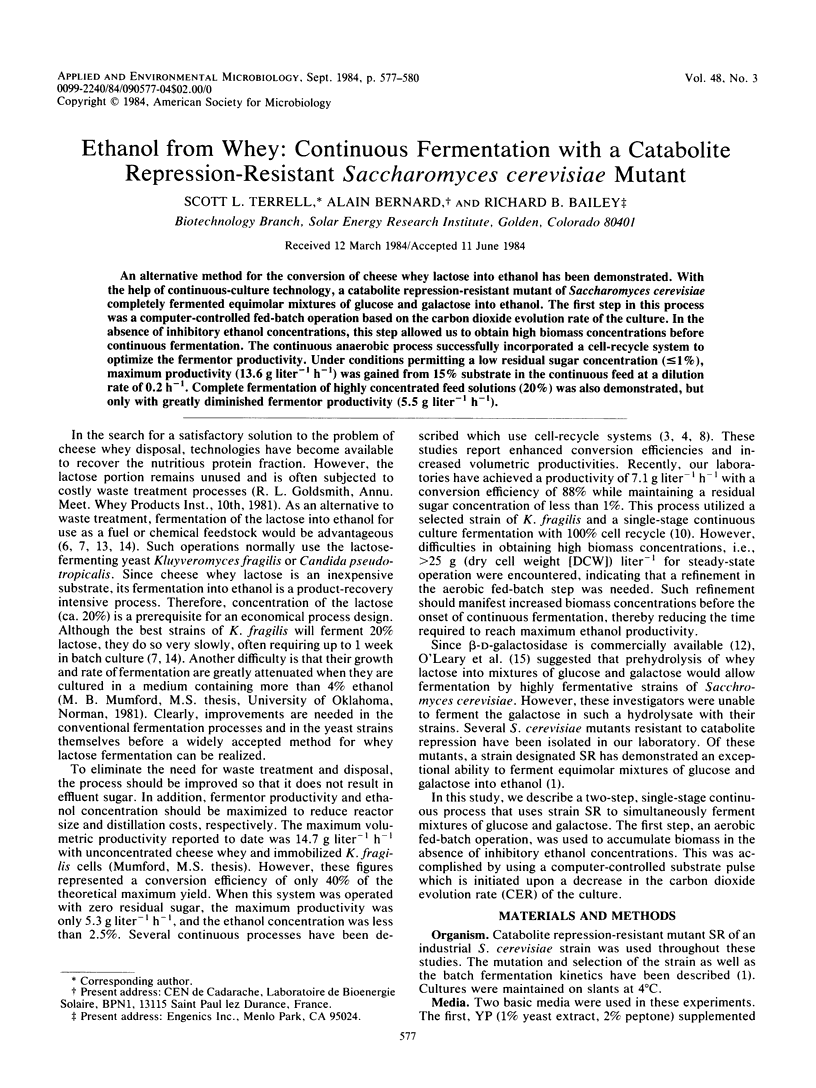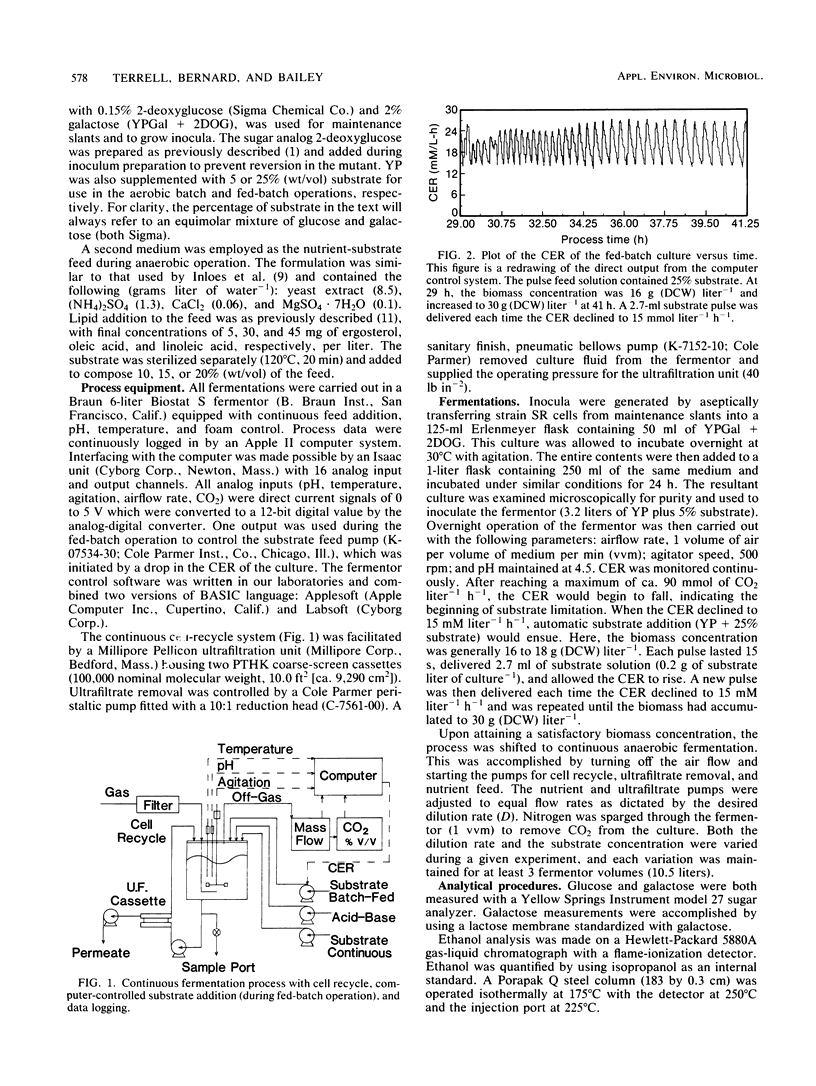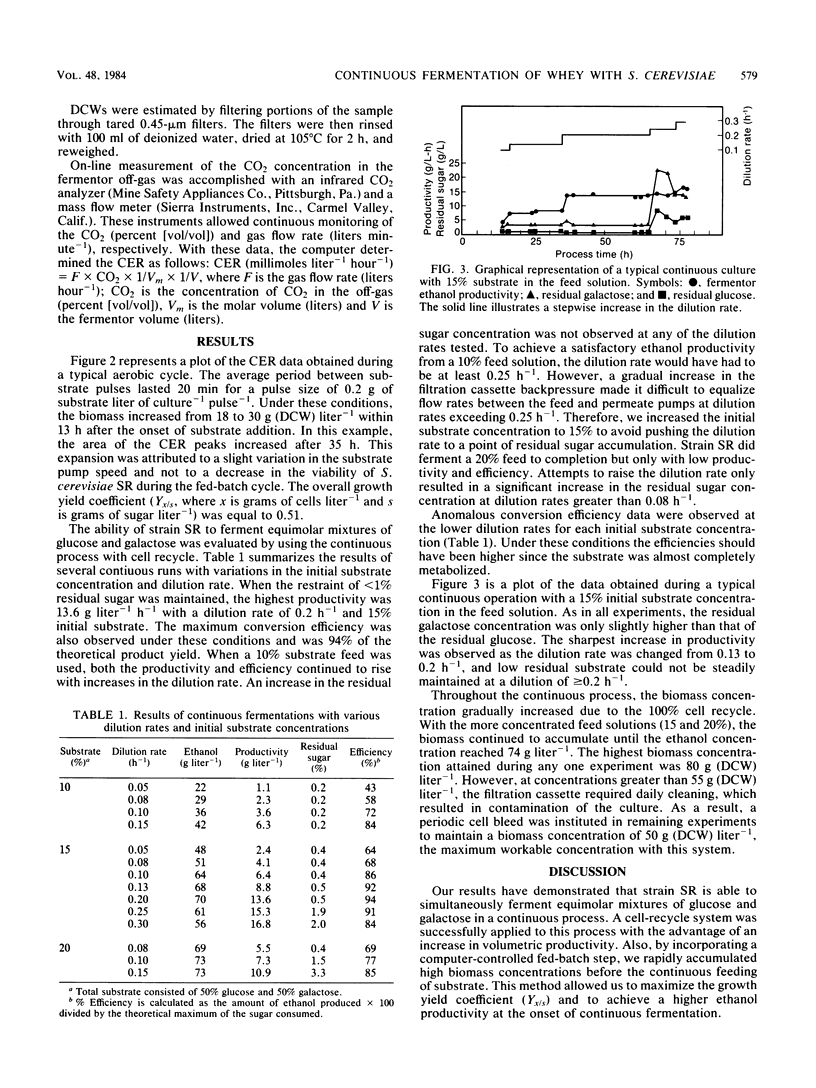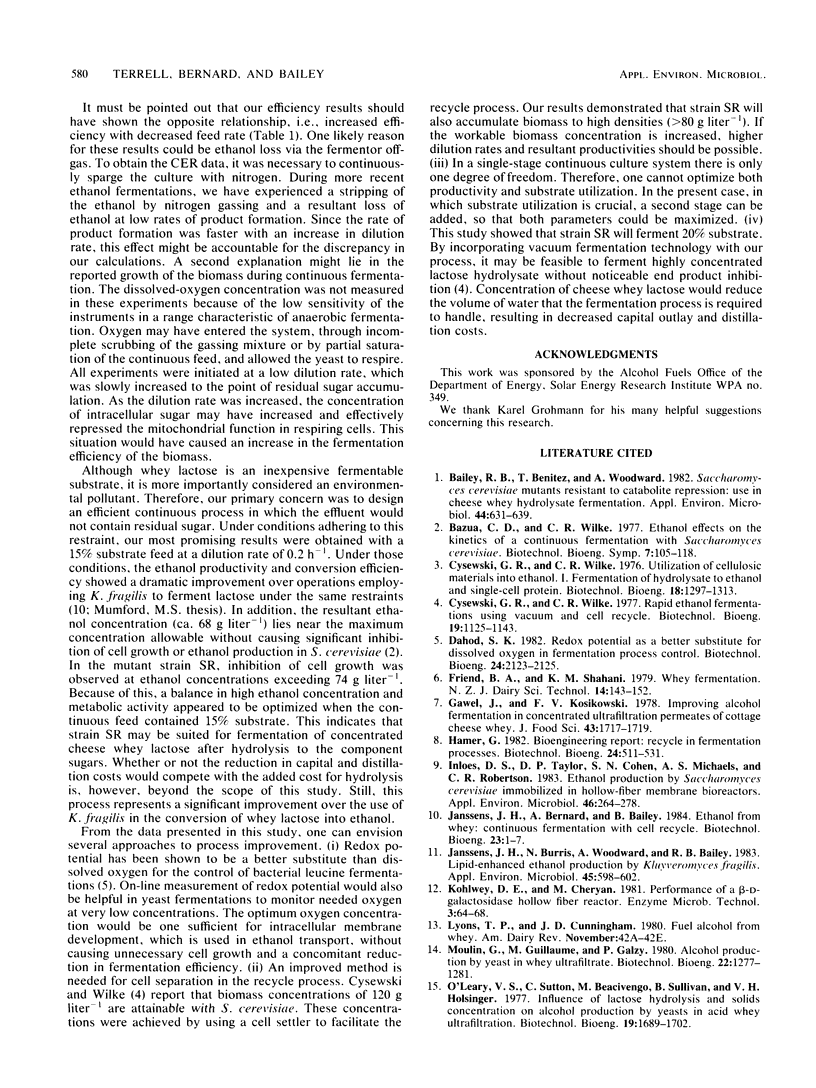Abstract
An alternative method for the conversion of cheese whey lactose into ethanol has been demonstrated. With the help of continuous-culture technology, a catabolite repression-resistant mutant of Saccharomyces cerevisiae completely fermented equimolar mixtures of glucose and galactose into ethanol. The first step in this process was a computer-controlled fed-batch operation based on the carbon dioxide evolution rate of the culture. In the absence of inhibitory ethanol concentrations, this step allowed us to obtain high biomass concentrations before continuous fermentation. The continuous anaerobic process successfully incorporated a cell-recycle system to optimize the fermentor productivity. Under conditions permitting a low residual sugar concentration (≤1%), maximum productivity (13.6 g liter−1 h−1) was gained from 15% substrate in the continuous feed at a dilution rate of 0.2 h−1. Complete fermentation of highly concentrated feed solutions (20%) was also demonstrated, but only with greatly diminished fermentor productivity (5.5 g liter−1 h−1).
Full text
PDF



Selected References
These references are in PubMed. This may not be the complete list of references from this article.
- Bailey R. B., Benitez T., Woodward A. Saccharomyces cerevisiae Mutants Resistant to Catabolite Repression: Use in Cheese Whey Hydrolysate Fermentation. Appl Environ Microbiol. 1982 Sep;44(3):631–639. doi: 10.1128/aem.44.3.631-639.1982. [DOI] [PMC free article] [PubMed] [Google Scholar]
- Bazua C. D., Wilke C. R. Ethanol effects on the kinetics of a continuous fermentation with Saccharomyces cerevisiae. Biotechnol Bioeng Symp. 1977;(7):105–118. [PubMed] [Google Scholar]
- Cysewski G. R., Wilke C. R. Utilization of cellulosic materials through enzyamtic hydrolysis. I. Fermentation of hydrolysate to ethanol and single-cell protein. Biotechnol Bioeng. 1976 Sep;18(9):1297–1313. doi: 10.1002/bit.260180908. [DOI] [PubMed] [Google Scholar]
- Inloes D. S., Taylor D. P., Cohen S. N., Michaels A. S., Robertson C. R. Ethanol Production by Saccharomyces cerevisiae Immobilized in Hollow-Fiber Membrane Bioreactors. Appl Environ Microbiol. 1983 Jul;46(1):264–278. doi: 10.1128/aem.46.1.264-278.1983. [DOI] [PMC free article] [PubMed] [Google Scholar]
- Janssens J. H., Burris N., Woodward A., Bailey R. B. Lipid-Enhanced Ethanol Production by Kluyveromyces fragilis. Appl Environ Microbiol. 1983 Feb;45(2):598–602. doi: 10.1128/aem.45.2.598-602.1983. [DOI] [PMC free article] [PubMed] [Google Scholar]



